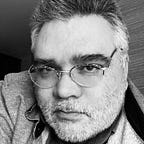“The Boy Walked up the Hill to the Well”
Just thinking about writing is enough to make my wife start to cry and pull her hair out, and I have spoken with numerous persons who say they find it hard to write. These are intelligent persons with a great deal to say, so I find their reactions fascinating. I know they can do it. Some of them have written great things. I know exactly what I wish to say and how I wish to say it, so I have never suffered the problem they describe. What is going on here?
Based on the reports I have heard, I have come to the following conclusions:
Some persons have a great deal they wish to say, but they get stuck on finding the right words. I think this is what is meant by “writer’s block”. (My version of writer’s block is feeling like writing but not having anything to say. Once I have something to say, I’m flying.) I have had a professional editor tell me that she labors over one sentence after another, one word after another. This, I believe, is what my wife suffers. She knows what she wishes to say but struggles to find the right words to say it. She says she knows that what she writes is good, she just hates the process of writing it.
My personal hypothesis is that these persons get hung up on the words. They wish to say a great deal, but they find it hard to distill and encapsulate everything they wish to say into a sentence or a word. They forget that readers remember ideas and feelings, not words. This is why I say not that the words do not matter but that they are merely the vehicles of the ideas. If I wish to say, “The boy walked up the hill to the well,” that is what I will write, because that is what is important. I will not mention the color of his shoes unless that is important, for example if someone is looking for someone wearing blue shoes. I will not mention the weather unless that is important, for example if the heat is why he is seeking a drink at the well. I know the reader will use her or his imagination to supply such details and enjoy the reading more as a result.
I think the problem many writers suffer is they feel the need to capture and describe the entire Universe. They do not seem to be content with one word, one sentence at a time until an impression is made. They wish to capture a Van Gogh painting in one sentence, forgetting that even all his brush strokes add up to an *impression*.
That sentiment can also lead to overcompensation in the other direction, but there is nothing more tedious than wading through unnecessary information that slows down the story or the point. I think that is why such pages get written: the writer felt obligated to provide that detail and did not know when to stop.
I write as little as possible, only what is necessary. I call my writing “hinting”. What is necessary to say? If I mention the weather or the color of a shoe, it is because it is necessary to the story or because I feel it strongly. If I mention a character’s hair color, it is because I simply cannot imagine that character any other way and wish it known. Otherwise the reader is free to supply such details. It is rare that I care about such details.
That’s it: I am an impressionist writer.
So when I hear people tell me they are suffering these problems, I feel sorry for them, but I think they do not understand writing, or perhaps I should say they do not understand hinting. They think they need to provide everything when they need to provide only the barest minimum. They need to stop focusing on the words and let the ideas or feelings determine the words. “The boy walked up the hill to the well” is the necessary information and requires no embellishment. All writing is the same.
But I do understand that this is easier said than done for many.
The irony of all this is that these writers have all read books and they have forgot what it is to read. They have forgot that readers care more about the meaning than the words.
